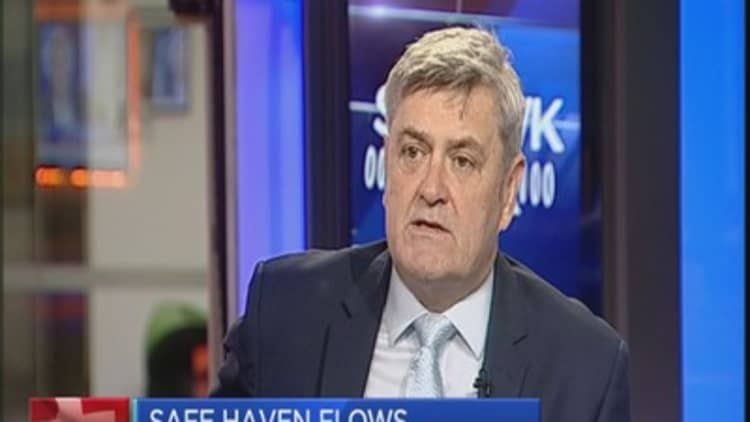
The Swiss National Bank's (SNB) decision to scrap its cap on the franc against the euro a year ago today shocked markets and sent the country's currency rocketing 30 percent. One year on, the franc is still high, 10 percent up against the euro, and export-focused Switzerland is still feeling the pain.
Looking back at the SNB's shock move James Watson, MD for UK and Europe at ADS Securities, told CNBC "a lot of people were caught in the headlights."
Hashtags such as #Francogeddon and #Franckenschock were soon trending on Twitter.
The decision to impose a maximum value on the franc – the cap had been in place at 1.20 franc per euro since 2011 when investors seeking a safe haven amid the turmoil created by the euro zone debt crisis pushed the franc higher - was made to help Swiss exporters compete. Switzerland's goods exports grew by 3.5 percent in 2014, exceeding the record set in 2008.
After the cap was lifted, Swiss exports weakened in the first 11 months of 2015, down 3 percent according to Swiss Customs Office data, although they picked up to growth of 1 percent in November. Swiss watch sales – the country exports iconic luxury brands such as Hublot and LVMH's Tag Heuer – remain depressed and recorded their worst November in five years.
"I don't think the SNB really thought about what the effect would be of what they did," Watson said. The SNB argued that recent falls in the currency meant that maintaining the peg was no longer justifiable. Analysts have also argued the SNB removed the peg for political reasons. The expected introduction of quantitative easing by the European Central Bank at the time also meant that defending the level against an even weaker euro would have required yet more intervention.
Watson believes the central bank took the approach of stimulating the economy, but "maybe they didn't give it as much thought as they could have".
While it has been painful for exporters, the strong franc has also made imports cheaper. Inflation for 2015 is forecast at –1.1 percent. Domestic demand looks set to remain robust, according to the bank, which expects growth of approximately 1.5 percent this year. For 2015, the SNB anticipates growth of just under 1 percent in Switzerland. Unemployment stood at 4.9 percent in the third quarter of 2015, according to the ILO, still well below the 6.3 percent recorded in November in neighbor Germany.
The central bank has also indicated that it is prepared to take measures to curb the strength of the franc. The currency, which has weakened in recent months to trade at about 1.09 euros, is still "considerably" overvalued according to the SNB. Vice chairman Fritz Zurbrügg said in speech earlier this week "business as usual is still a long way off".
He added that under certain conditions, the SNB was still prepared to intervene directly in the foreign exchange market. "This applies especially in the prevailing environment," he said.


